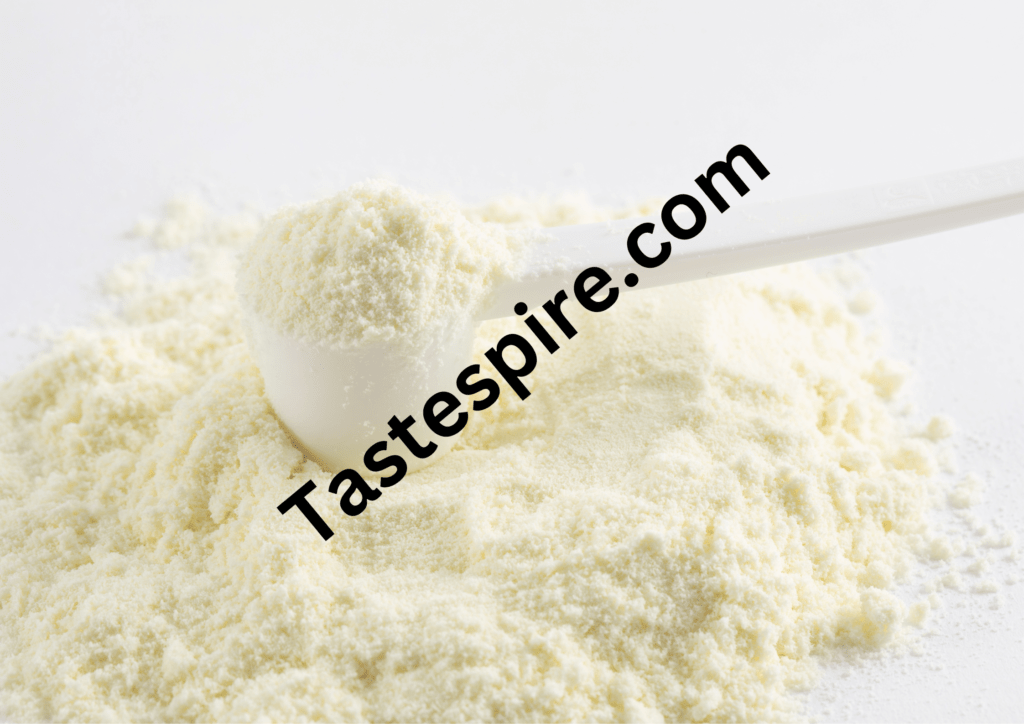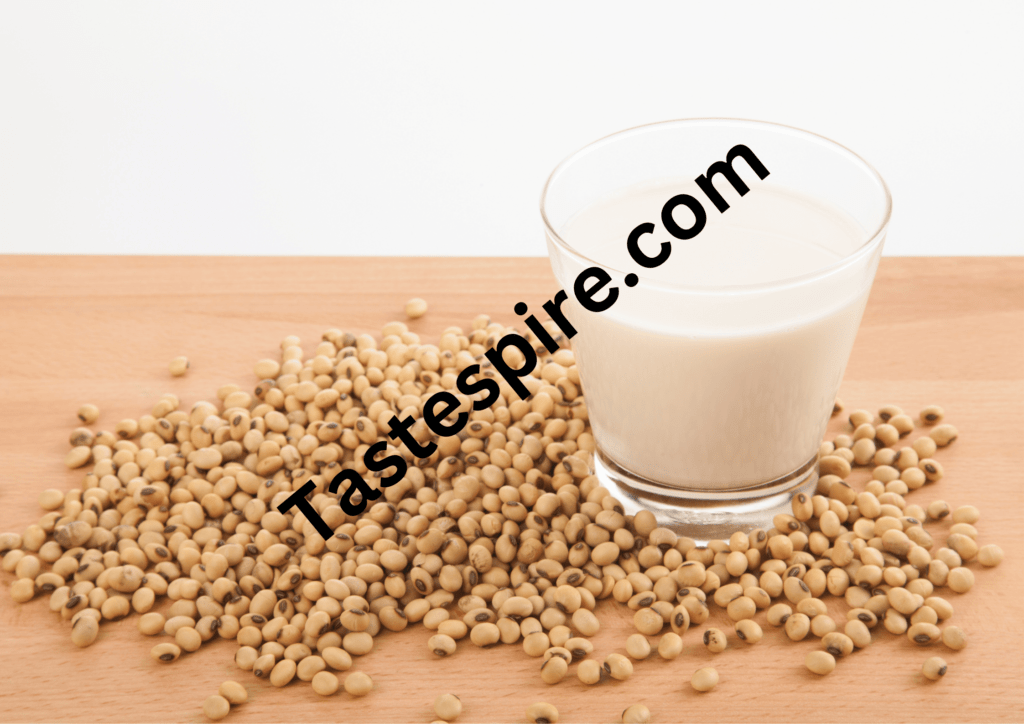In a world where dietary preferences and health concerns are continually evolving, one of the most common dietary changes people make is ditching dairy. Whether it’s due to lactose intolerance, ethical reasons, or simply a desire to explore new flavors. Many people are seeking alternatives to traditional cow’s milk. If you’re thinking of making the switch so you’re in luck! In this comprehensive guide we’ll introduce you to 15 surprising substitutes for milk that you need to try today. From creamy and indulgent options to lighter choices for the health conscious we’ve got you covered.
Table of Contents
Here Are 15 Best Substitutes for Milk
1. Cream or Half-and-Half
If you’re looking for a substitute that replicates the richness of dairy milk cream or half-and-half is an excellent choice. These options are perfect for adding a luxurious touch to your morning coffee, soups, or desserts. Just be mindful of their high-fat content as they may not be suitable for those watching their calorie intake.
2. Evaporated or Powdered Milk

Evaporated or powdered milk is a versatile alternative that can be used in various recipes. These products have a longer shelf life which make them convenient for storage. You can reconstitute powdered milk by mixing it with water to make it a practical choice for those who prefer non-perishable options.
3. Sour Cream or Plain Yogurt
Sour cream and plain yogurt are dairy products themselves but they can serve as substitutes for milk in certain recipes. They add a tangy flavor and creaminess to dishes like dips, dressings, and baked goods. Plus they’re packed with probiotics that are beneficial for your gut health. Yogurt can be used as Substitute for butter also.
4. Water (or Water and Butter)
In a pinch water can be a simple replacement for milk in recipes. For a richer taste and texture, consider using a combination of water and melted butter. This option works well in recipes where the milk’s primary function is to provide moisture.
5. Nut Milk
Nut milk such as almond, cashew, or hazelnut milk has gained immense popularity among dairy-free enthusiasts. It offers a slightly nutty flavor and a creamy consistency that closely resembles traditional milk. Nut milk is an excellent choice for cereal, coffee, or baking.
6. Soy Milk

Soy milk is one of the most widely available dairy milk substitutes. It has a neutral taste and a similar protein content to cow’s milk making it an ideal choice for those who want a close match to traditional milk in their recipes.
7. Oat Milk
Oat milk has taken the plant-based milk market by storm in recent years. Its creamy texture and natural sweetness make it a fantastic milk substitute for both sweet and savory dishes. Oat milk is also an environmentally friendly option as oats have a lower carbon footprint compared to some other crops.
8. Rice Milk
Rice milk is a light and subtly sweet alternative to dairy milk. It’s naturally lactose-free and has a thin consistency which make it a suitable choice for those with dietary restrictions or allergies. Use it in smoothies, cereal, or as a base for creamy soups.
9. Coconut Milk
Coconut milk derived from the flesh of coconuts which adds a tropical twist to your recipes. It’s particularly popular in Asian and tropical cuisine. You can use it in curries, desserts, or even as a dairy-free creamer for coffee.
10. Hemp Milk
Hemp milk is a lesser-known dairy substitute but it deserves recognition for its nutritional benefits. It’s rich in omega-3 fatty acids and protein which make it a healthy choice. Its slightly nutty flavor pairs well with cereals and smoothies.
11. Quinoa Milk
Quinoa milk is a nutritious and allergen-friendly option. It’s made from quinoa grains which are naturally gluten-free and packed with essential amino acids. This milk substitute is a great addition to your plant-based pantry.
12. Flax Milk
Flax milk derived from flaxseeds, it is another omega-3 powerhouse. It has a mild nutty taste and is often fortified with vitamins and minerals. It’s a heart-healthy choice for those looking to boost their nutrient intake.
13. Macadamia Milk
Macadamia milk offers a creamy and buttery flavor profile. It’s an indulgent choice for coffee, baking, or as a stand-alone beverage. Its richness adds depth to your culinary creations.
14. Hazelnut Milk

Hazelnut milk boasts a delightful nutty essence that can enhance the taste of your morning latte or dessert recipes. It’s low in calories and sugar which make it suitable for those aiming for a healthier lifestyle.
15. Pea Milk
Pea milk is a rising star in the world of plant-based milk alternatives. It’s made from yellow peas and provides a good amount of protein. With a mild flavor it’s a versatile option for cooking, baking, and drinking.
Comparing Milk Substitutes: Creaminess, Taste, Usage, and Nutritional Benefits
| Substitute | Creaminess | Taste | Usage | Nutritional Benefits | Substitution Ratio |
|---|---|---|---|---|---|
| Cream or Half-and-Half | High | Rich | Coffee, Desserts | High in Fat (Calorie-dense) | 1:1 |
| Evaporated or Powdered Milk | Versatile | Neutral | Baking, Cooking | Longer Shelf Life | Follow package instructions |
| Sour Cream or Plain Yogurt | Creamy | Tangy | Dips, Dressings, Baking | Probiotics (Gut Health) | 1:1 |
| Water (or Water and Butter) | Varies | Neutral | Cooking (as needed) | Low in Calories | As needed |
| Nut Milk | Creamy | Nutty | Cereal, Coffee, Baking | Healthy Fats, Nutrients | 1:1 |
| Soy Milk | Creamy | Neutral | Cooking, Baking, Coffee | Protein, Close to Cow’s Milk | 1:1 |
| Oat Milk | Creamy | Sweet | Smoothies, Cooking | Environmentally Friendly | 1:1 |
| Rice Milk | Thin | Sweet | Cereal, Smoothies, Soup | Lactose-Free | 1:1 |
| Coconut Milk | Creamy | Tropical | Curries, Desserts, Coffee | Distinct Flavor | 1:1 |
| Hemp Milk | Creamy | Nutty | Cereal, Smoothies | Omega-3, Protein | 1:1 |
| Quinoa Milk | Creamy | Neutral | Cooking, Baking | Gluten-Free, Amino Acids | 1:1 |
| Flax Milk | Mild | Nutty | Cereal, Baking, Cooking | Omega-3, Fortified | 1:1 |
| Macadamia Milk | Creamy | Buttery | Coffee, Baking | Rich Flavor, Low Calories | 1:1 |
| Hazelnut Milk | Nutty | Nutty | Coffee, Desserts, Baking | Low Calories, Low Sugar | 1:1 |
| Pea Milk | Varies | Mild | Cooking, Baking, Drinking | Protein-Rich, Versatile | 1:1 |
FAQs:
What are substitutes for milk?
Common substitutes for milk include plant-based milk alternatives such as almond milk, soy milk, oat milk, coconut milk, rice milk, and hemp milk. Lactose-free cow’s milk is also an option for those with lactose intolerance.
What are non-dairy milk substitutes for coffee?
Many non-dairy milk alternatives work well in coffee. Several well-liked choices encompass almond milk, soy milk, oat milk, coconut milk, and cashew milk. These options can provide a creamy texture and different flavor profiles to your coffee.
What substitutes for lite coconut milk?
If you need a substitute for lite coconut milk you can often use regular (full-fat) coconut milk diluted with water to achieve a similar consistency. Alternatively you can use almond milk or any other non-dairy milk to replace lite coconut milk in recipes. Keep in mind that the flavor and richness may vary.
What are substitutes for milk in cooking?
When substituting milk in cooking or baking you can use various non-dairy milk alternatives such as almond milk, soy milk, oat milk, coconut milk and rice milk. The choice depends on the specific dish and your dietary preferences. You can generally use these substitutes in a 1:1 ratio for most recipes.
What substitutes for evaporated milk?
If you need a substitute for evaporated milk in a recipe you can use one of the following options:
- Using an equal proportion of whole milk in conjunction with half-and-half cream.
- Using equal quantities of whole milk and heavy cream.
- An equal amount of non-dairy milk such as coconut milk or almond milk that has been reduced by simmering until it thickens to a similar consistency as evaporated milk.
- You can also make a homemade substitute by combining 2.25 cups of whole milk with 0.75 cups of half-and-half which will yield a total of 3 cups of a mixture that closely mimics the thickness of evaporated milk.
Remember that the choice of substitute may slightly alter the flavor and texture of your dish so consider your taste preferences and dietary restrictions when selecting a replacement for milk or evaporated milk.
Conclusion:
In conclusion the world of dairy alternatives is vast and exciting. Whether you’re lactose intolerant, vegan, or simply looking to expand your culinary horizons there’s a milk substitute for everyone. Experiment with these 15 surprising options to discover your favorites and revolutionize your recipes. Remember that each substitute may have its unique flavor and texture so don’t hesitate to explore and find the perfect match for your taste buds. Happy dairy-free cooking!
Reference:
https://www.craftsy.com/post/milk-substitutes/
Other Blog Posts:
